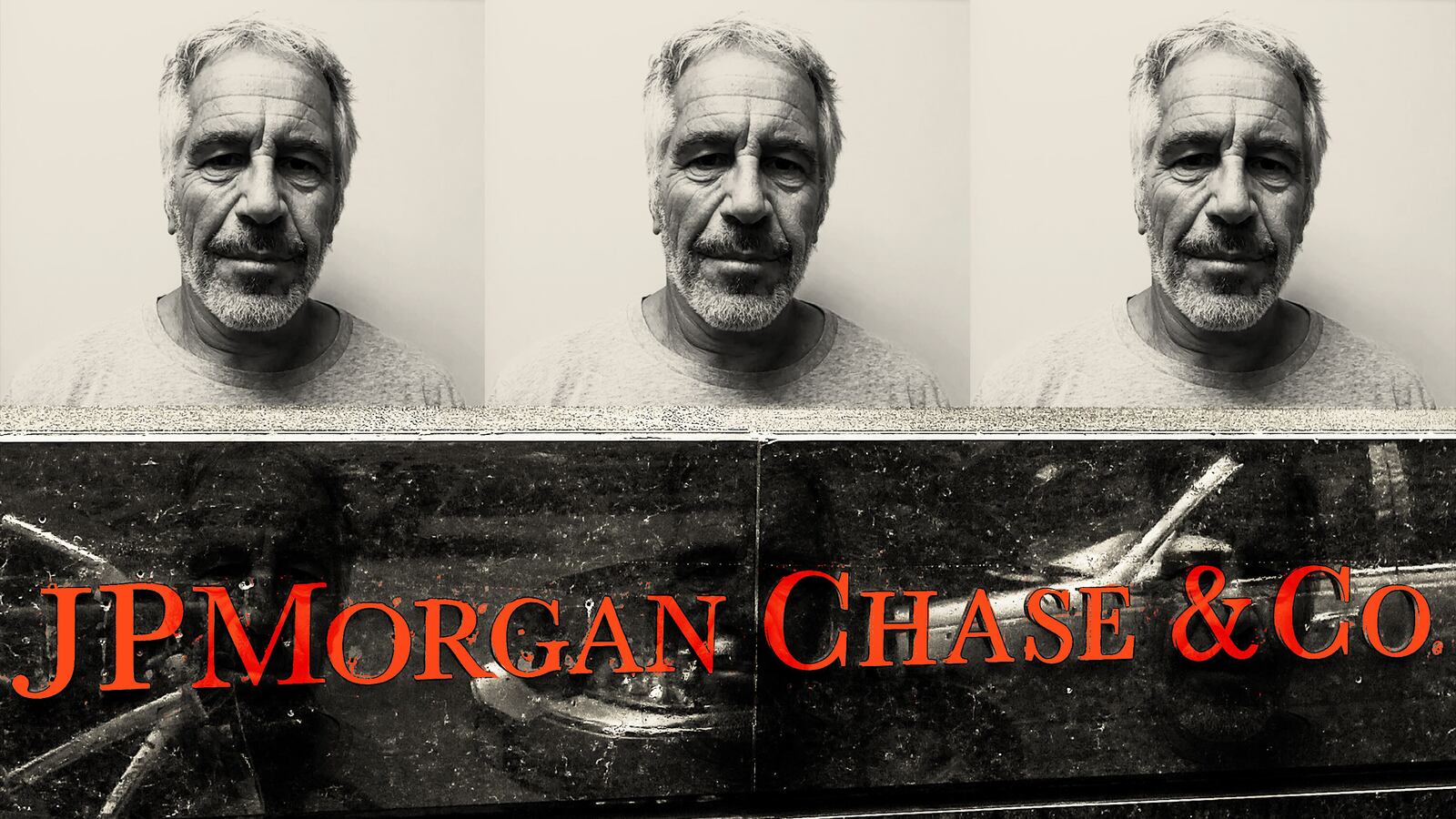JPMorgan Chase has once again agreed to a massive settlement over its long-term relationship with sex offender Jeffrey Epstein—this time paying the government of the U.S. Virgin Islands to end its sex-trafficking lawsuit against the financial giant.
Late last year, the Caribbean territory sued JPMorgan, accusing the bank of facilitating Epstein’s sex ring while collecting millions via the late trafficker’s client referrals. One of Epstein’s victims, referred to as Jane Doe, had filed a class-action lawsuit against JPMorgan with similar claims that was settled in June for $290 million.
The USVI’s settlement—totaling $75 million—comes about a month before the case was scheduled for trial in Manhattan federal court. In July, the government stated in legal filings that it was seeking a minimum of $190 million from the bank.
Separately, JPMorgan announced it had reached an agreement with former executive Jes Staley—a friend of Epstein’s who visited his private island and who shared creepy messages with the trafficker—who it was suing to hold liable for any damages.
The terms of that agreement are confidential, JPMorgan said.
The USVI’s litigation unveiled new details about Epstein’s connections and how JPMorgan catered to the perverted money manager while for years ignoring its own compliance officials’ red flags about his activities, both criminal and financial.
Among the new disclosures: Epstein, who died by suicide in jail in 2019, was considered a financial adviser to Google co-founders Larry Page and Sergey Brin; the bank flagged $1 billion in Epstein’s suspicious transactions to the U.S. Treasury Department after his death; and JPMorgan accepted new client referrals from Epstein after terminating its relationship with him in 2013.
In a press release announcing the settlement, U.S. Virgin Islands Attorney General Ariel M. Smith said JPMorgan has committed to creating safeguards to combat human trafficking. (JPMorgan spokeswoman Patricia Wexler, however, issued a clarification, stating the bank “remains committed to previous and ongoing efforts” via its AML, or anti-money laundering program. “There are no new commitments,” Wexler said.)
The USVI said the case marked the first time a state attorney general used the Trafficking Victims Protection Act (TVPA) to justify a lawsuit and the first-ever enforcement action filed against a bank for enabling and profiting off a trafficking network.
“This settlement is an historic victory for survivors and for state enforcement, and it should sound the alarm on Wall Street about banks’ responsibilities under the law to detect and prevent human trafficking,” Smith said.
“Our Department of Justice tirelessly pursued this enforcement action to make it substantially harder for traffickers to finance their crimes in the future, and we are confident this settlement will help achieve that goal,” she added. “We are proud to have stood alongside the survivors throughout this litigation, and this settlement reflects our continued commitment to them. With this constructive resolution of this groundbreaking litigation, we look forward to helping our community move forward and to building a new relationship with JPMorgan.”
According to the USVI, the settlement will fund law enforcement anti-trafficking efforts, local nonprofits that support victims of domestic violence and human trafficking, and a $10 million fund to provide counseling services for victims of Epstein.
In its own announcement on Tuesday, JPMorgan said it had agreed to a $55 million payout plus $20 million in attorneys’ fees.
JPMorgan added that $30 million would go toward USVI charities “whose work is aimed at addressing social ills, including fighting human trafficking and other sex crimes, and to support survivors on their paths to healing,” while $25 million would be paid to law enforcement.
“JPMorgan Chase believes this settlement is in the best interest of all parties, particularly for those who can benefit from efforts to combat human trafficking, and for survivors who suffer unimaginable abuse at the hands of these criminals,” the bank said.
“While the settlement does not involve admissions of liability, the firm deeply regrets any association with this man, and would never have continued doing business with him if it believed he was using the bank in any way to commit his heinous crimes.”
This isn’t the first time USVI has received millions in connection to Epstein. In November 2022, Epstein’s estate paid the territory $105 million to settle a civil racketeering suit filed by former attorney general Denise George, who alleged that the financier “created a network of companies” to further his “forced labor” and “sexual servitude” of women.
And, as The New York Times reported, billionaire Leon Black paid the USVI $62.5 million in January to be released from any claims connected to the government’s probe into Epstein’s crimes.
Brad Edwards, a lawyer for Doe and other victims, told The Daily Beast that the USVI settlement “is further evidence of the continued extraordinary courage of the survivors of Jeffrey Epstein’s abuse that was only made possible with the help of some of the most powerful people and entities in the world.”
“It is also evidence that our banks can do more to protect victims,” he said. “The victims and survivors have made monumental accomplishments through holding banks accountable in this way.”







